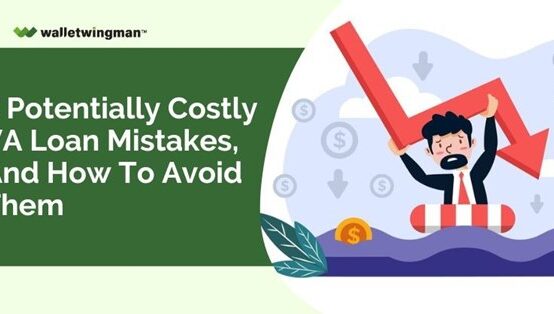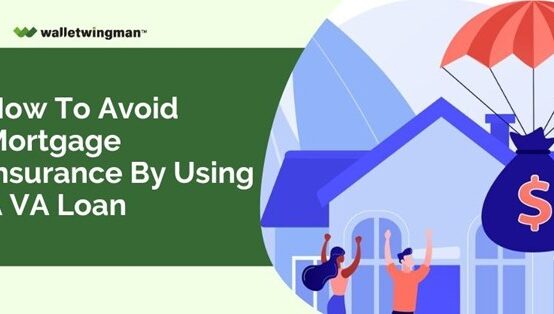A seller’s real estate market can create additional challenges for home buyers using VA loans. But they’re only challenges, not roadblocks. With the right strategy, you can successfully use a VA loan to buy a home in a seller’s market—and this guide will help you do it.
What Is a Seller’s Market Exactly?

You probably already know that a seller’s real estate market occurs when market conditions favor VA loan seller concessions rather than buyers.
But how does this come about? What factors contribute to a seller’s market, and how do they affect you when buying a home with a VA loan?
Definition: In real estate, a “seller’s market” happens when there are more VA Loan Buyer seeking homes than there are properties available. This dynamic gives sellers a significant advantage in pricing and negotiations.
Here are some of the challenges buyers can face in a seller’s market:
- Low Inventory: Finding a suitable home within your budget can be harder.
- Faster Sales: Homes can sell quickly, often within days of being listed.
- Higher Prices: Sellers often receive offers at or above the asking price.
- Bidding Wars: Eager buyers often try to outbid each other for desirable homes.
- Less Leverage: Buyers might have less room to negotiate repairs or concessions.
A seller’s market typically develops due to imbalances between housing market supply and demand. However, there are other contributing factors as well. Zoning restrictions, population growth, investment activity, and a lack of available land can also lead to a seller’s real estate market.
Buying in a Seller’s Market With a VA Loan

Home buyers using VA loans can encounter additional challenges and obstacles in a seller’s market compared to a slower market that favors buyers.
For one thing, sellers can be a lot pickier when reviewing offers. They can choose offers with the highest sale price and the fewest “strings attached” while dismissing those at the other end of the spectrum.
But how does a VA loan play into this dynamic? Do borrowers with VA Interest Rates have more difficulty navigating a seller’s market than those who use traditional conventional mortgages?
The answer is “sometimes yes.”
In a fast-paced real estate market with stiff competition between buyers, those who use VA loans can face additional challenges. This is partly due to misconceptions about the VA loan rate.
Two of the most common misconceptions are:
- VA loans take much longer to close and are more likely to “fall through.”
- VA loans often require expensive repairs due to strict property standards.
(Note: We’ve debunked these and other VA loan myths in a previous article.)
Regarding the first point, VA-guaranteed mortgage loans have a higher closing success rate than regular/conventional home loans. Statistically speaking, borrowers who use VA loans to buy a house are more likely to reach the finish line and receive funding.
As for VA loan seller requirements, they’re really not that strict at all. While the Department of Veterans Affairs does maintain a specific set of minimum property requirements or MPRs, they primarily relate to essential health and safety issues like lead-based paint and faulty wiring.
Well-maintained properties in overall good condition typically have no problem meeting VA loan guidelines.
Concerns Over Property Requirements and Repairs

But this is where the seller’s market distinction comes back into the picture. Even if there’s a slight chance a homeowner might have to make repairs to meet VA mortgage rates standards, they might favor purchase offers backed by conventional financing.
Conventional loans are not backed by the government, so they don’t have any government-imposed property requirements. The buyer can choose to have the home inspected, but they’re not required to do so.
In a competitive seller’s market, buyers with conventional VA mortgage loans sometimes waive the home inspection to make their offers more appealing. However, a borrower with a VA loan cannot do this. VA loans require a home appraisal that has an inspection component built into it.
The truth is homeowners with well-maintained properties have nothing to fear when it comes to VA-loan-backed offers. As mentioned, homes in good condition usually “sail through” the appraisal process with no snags or red flags.
On the other hand, homes in need of work might not come under VA Loan qualifications at all. In these cases, the appraiser might determine that certain items must be repaired to meet property requirements. And in a seller’s market, that doesn’t go over so well.
Developing a Strategic Approach

In a seller’s market, you may want to use the following tactics to improve your chances of success:
1. Work with a Knowledgeable Real Estate Agent
In a seller’s market, teaming up with a well-informed real estate agent is as essential as unraveling a tangled knot.
Their professional knowledge of the market trends, negotiation techniques, and the knowledge of local specifics they possess can offer a lot of benefits and strategies throughout the house search process.
A seasoned agent is good at spotting prospects, fabricating distinguished pitch decks, and maneuvering multiple concurrent bidding.
Through their assistance and expert knowledge, you will have a higher likelihood of locating and securing your dream house in an environment of tough competition.
2. Be Prepared to Act Quickly
In the present fast-paced seller’s market, the crucial ability to act smoothly is required. Always remember that you will have to make decisions promptly so you don’t miss the opportunity of a desirable home.
Make preparations in advance by doing the necessary research, such as knowing the markets and what suits your taste. When you are ready to move, find and fix any financial problems you might have, including a pre-approval letter from the VA to prove you are prepared to move forward.
Through continuous alertness and quick actions, you can discover emerging opportunities when they appear, which makes it possible to win the race of the competitive housing market.
3. Submit a Strong Offer
Presenting a solid offer will be of great importance in your current highly competitive seller market. Besides motivated price, what else could you possibly offer, such as providing contingent terms or some other incentives, to make your bid different from others?
For example, instead of holding down the buyer, the seller can opt to put in a bigger earnest money deposit, a flexible closing date, or cancel contingencies such as home inspection contingencies.
Collaborate with a real estate agent who will help you learn how to bid in ways that will attract the seller and protect your interests. A good standout offer raises the chances of your offer being approved in a bidding war against the competition.
4. Demonstrate Financial Strength
Emphasizing the strength of your offer is vital to the success of your transaction in the current seller’s market, so it will be of the utmost importance. Besides a motivated price, what else can one use to make one bid stand out from others?
For example, one may provide contingent terms, rebates, or some other incentives. To cover that by way of illustration, for a buyer, the seller may decrease the deposit amount or extend the deadline rather than hold the buyer.
Work with an agent who will guide you in ways to put up a winning bid and guide you during the offers and counteroffers. A standout offer should allow for a greater chance of acceptance of the deal in competitive bidding against other companies.
5. Flexibility in Negotiations
Flexibility in negotiations serves as a core element, allowing you to struggle with the derivativeness of the seller’s market. Be patient and flexible with an attitude that is compromise-friendly and applicable to scenarios where both you and the seller have mutual benefits.
Consider negotiations as a way to accommodate each other with conditions, dates, fixes, or even the VA loan costs to seller of your house. Engage with your real estate agent on a regular basis to pinpoint any adjustments that can be successfully made without affecting your overall plans.
A flexible approach readily confers on your ability to reach an agreement with the seller on terms that are mutually acceptable to the two parties.
VA Loan Benefits Can Outweigh the Downsides
Ultimately, you have to choose the type of mortgage loan that works best for you based on your financial situation. And there are many things to like about the VA loan program.
In a seller’s market, borrowers with VA loans can encounter occasional obstacles. However, the VA home loan benefits of this program typically outweigh any potential downsides when it comes to VA loan seller costs.
Here are some of the most significant benefits this program offers:
- No down payment is required in most cases
- Competitive interest rates
- No need for private mortgage insurance (PMI)
- Limited closing costs
- More flexible credit and income requirements
- Ability to reuse the program multiple times
- No prepayment penalties
- VA assistance if you face hardship and struggle with payments
VA loans allow you to buy a home with no down payment and no mortgage insurance. This removes what is often the biggest obstacle for home buyers. Even in a competitive seller’s market, home buyers can still benefit by using a VA loan to buy a house.
You just have to enter the market with the right mindset and realistic expectations. If a seller turns down your offer for some reason, move on to the next property.
You can also increase your chances of success by getting pre-approved for a loan prior to house hunting and by making a solid offer with few contingencies.



 10 Important Quotes from the Official VA Loan Buyer’s Guide
10 Important Quotes from the Official VA Loan Buyer’s Guide  7 Potentially Costly VA Loan Mistakes, and How to Avoid Them
7 Potentially Costly VA Loan Mistakes, and How to Avoid Them  How to Avoid Mortgage Insurance By Using a VA Loan
How to Avoid Mortgage Insurance By Using a VA Loan  VA Loans Benefits and Requirements for Surviving Spouses
VA Loans Benefits and Requirements for Surviving Spouses 